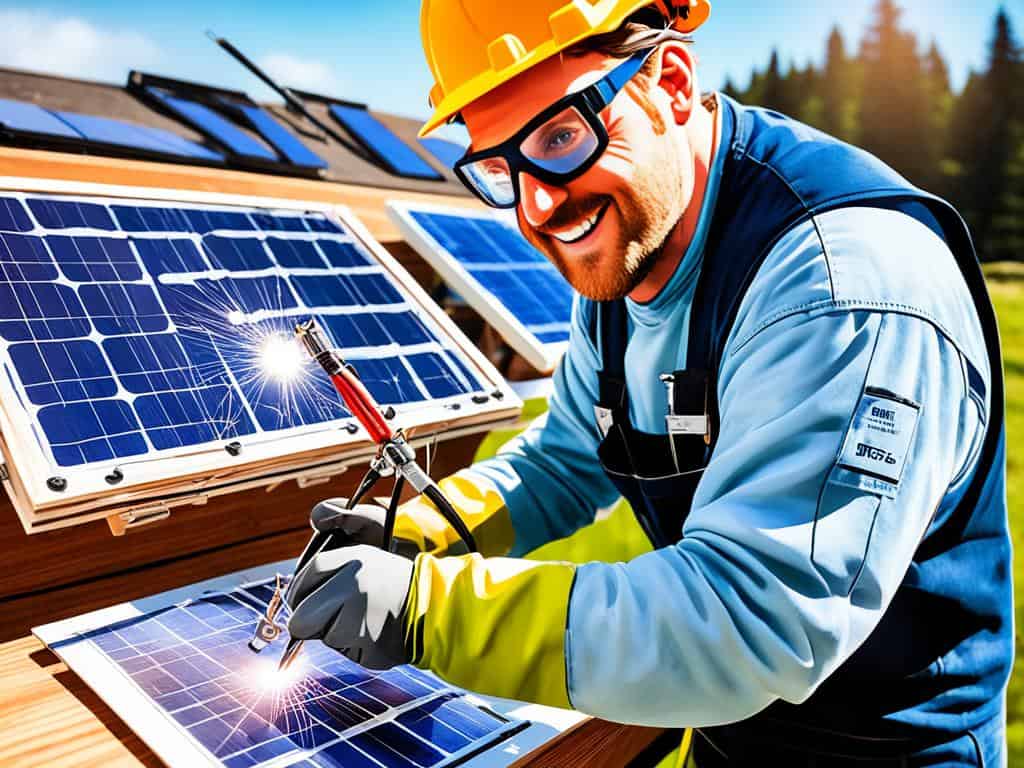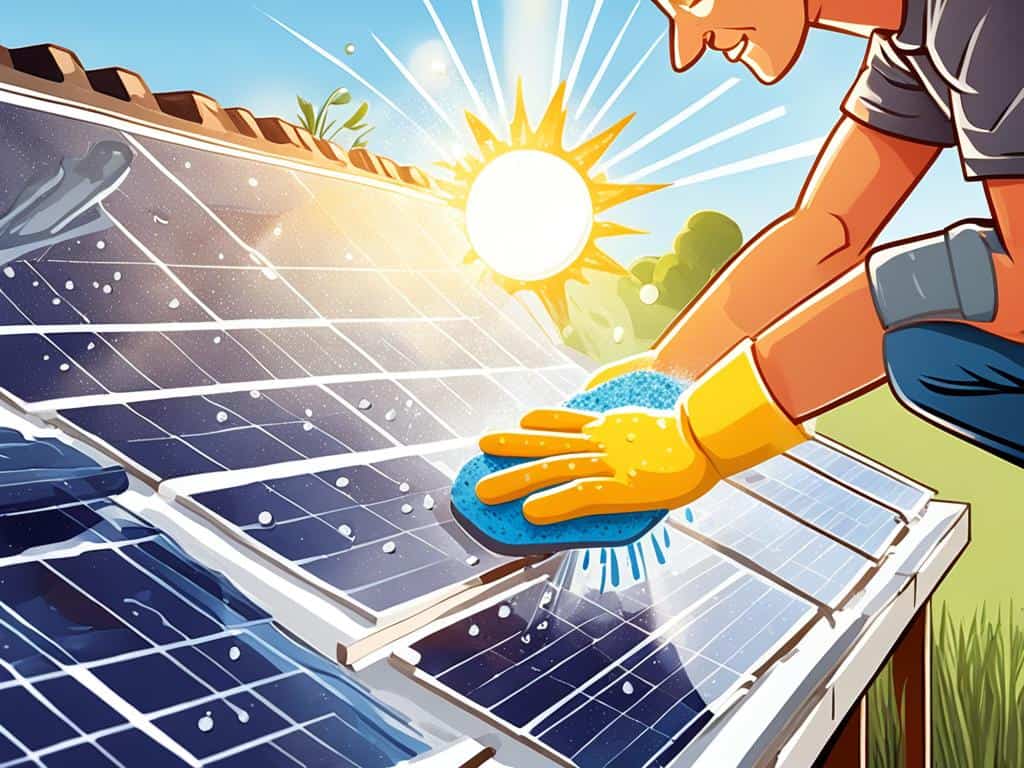Solar Meter Connection Guide & Tips | Go Green
Explore our Solar Meter Connection guide for seamless integration of solar energy into your home. Harness clean power efficiently in India!
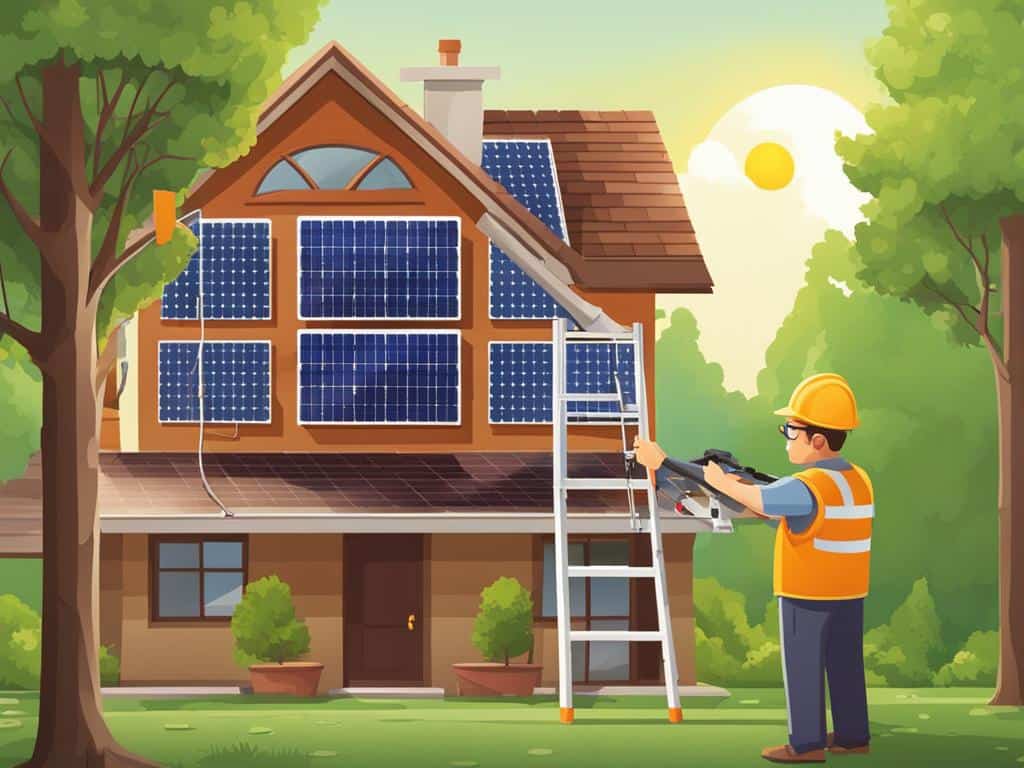
Have you thought about cutting your monthly electricity bill in half by using the sun? Since 2008, the U.S. has seen a massive increase in solar panels. This isn’t just a trend—it’s a move towards a brighter, eco-friendly future. The solar energy meter setup might look complex. Yet, with new tech and net metering, it’s easier for homeowners. Nowadays, systems like the 7.15 kilowatts DC by the National Renewable Energy Laboratory (NREL) meet a typical home’s needs. Plus, as solar panel costs drop, solar panel metering becomes an eco-friendly and smart money choice.
Getting to know the solar meter connection is key for this green shift. Net metering combines environmental and financial benefits, especially in places like California with over $92 million in yearly benefits. Even with some pushback from traditional energy companies, the advantages of solar are clear. Keep reading to see how solar meter connections, backed by policies and incentives, are changing our energy outlook.
Key Takeaways
- Understanding solar meter connection basics is crucial for homeowners looking to use solar energy.
- With the cost of solar tech dropping and policies like the Solar Investment Tax Credit, going solar is more doable.
- Net metering changes the game by saving money and promoting green energy.
- Pairing solar systems with efficient appliances boosts their effectiveness.
- Knowing local and federal incentives for solar use helps you get the most out of it.
- Smart meters and the Smart Export Guarantee (SEG) are modern helps for solar growth.
- Finding reliable energy providers and overcoming initial hurdles are key to enjoying solar’s full benefits.
The Fundamentals of Solar Meter Installation
Embracing solar energy is key for homeowners wanting to cut energy costs and help the environment. By adding a solar meter to your home, you become part of a community that values energy efficiency and solar power benefits.
Types of Solar Meters for Home Use
Choosing the right solar meter is vital for those in net metering or solar buyback programs. The meter you pick impacts how well your solar system works and its cost-effectiveness. It’s about either feeding extra electricity back to the grid or keeping track of how much you use.
Net metering is available in 38 states plus Washington, D.C., with over 36 states offering specific programs. These programs let homeowners sell unused energy back to the power company. This makes the idea of getting solar panels more attractive.
Understanding the Solar Meter Installation Process
Installing a solar meter must follow strict rules for safety and effectiveness. To be part of net metering programs, home solar setups have to stick to the National Electrical Code (NEC) Article 690.64. They also must meet certain requirements by local power companies.
Installing a solar meter usually needs a pro. Some states require a special application for connecting your system. This highlights why having professional help is crucial.
Required Tools and Equipment for Solar Meter Setup
Setting up a solar meter requires the right tools and know-how. Homeowners need everything from safety gear to specific electrical tools. Or, they can hire experts to make sure everything meets the required guidelines and standards.
Before getting a solar system, it’s important to know about your state’s net metering programs. The availability and rules of these programs vary a lot.
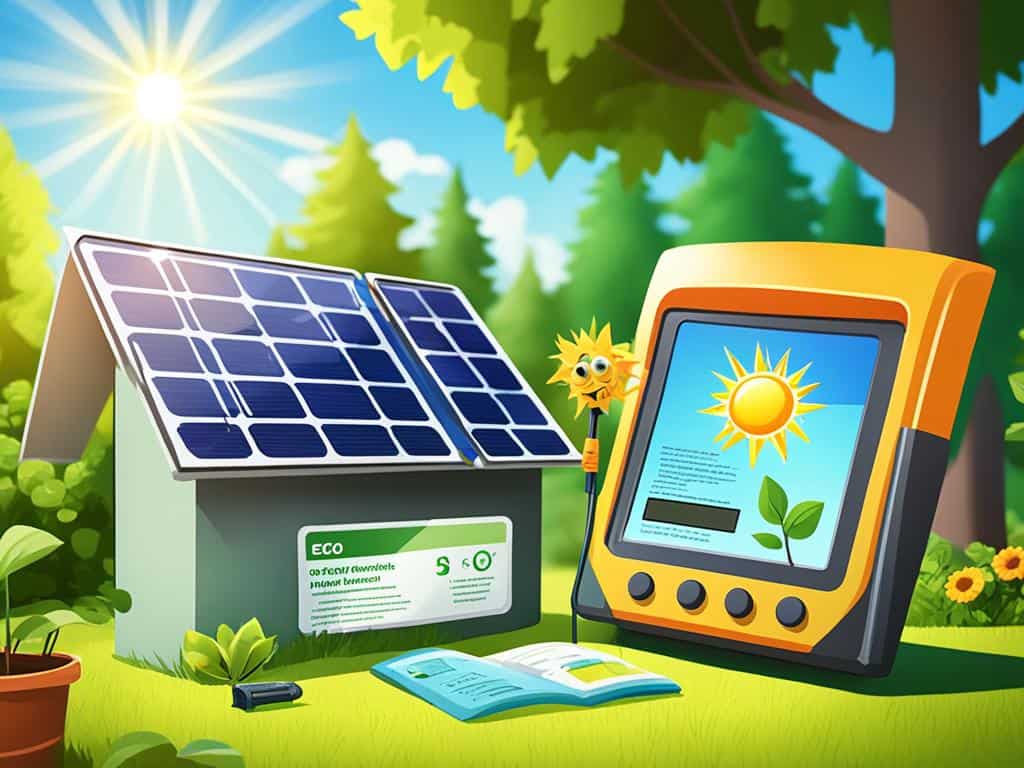
Changes like net billing in places like California are shaping how solar energy users make money. This shows how complex solar energy can get. It highlights the need for thorough solar meter installation and connection services.
Net metering can cut the need for expensive energy storage systems. It might even double the financial returns of a solar installation. This makes it a big deal for homeowners thinking about switching to renewable energy.
Net Metering Policy and Its Impact on Solar Metering
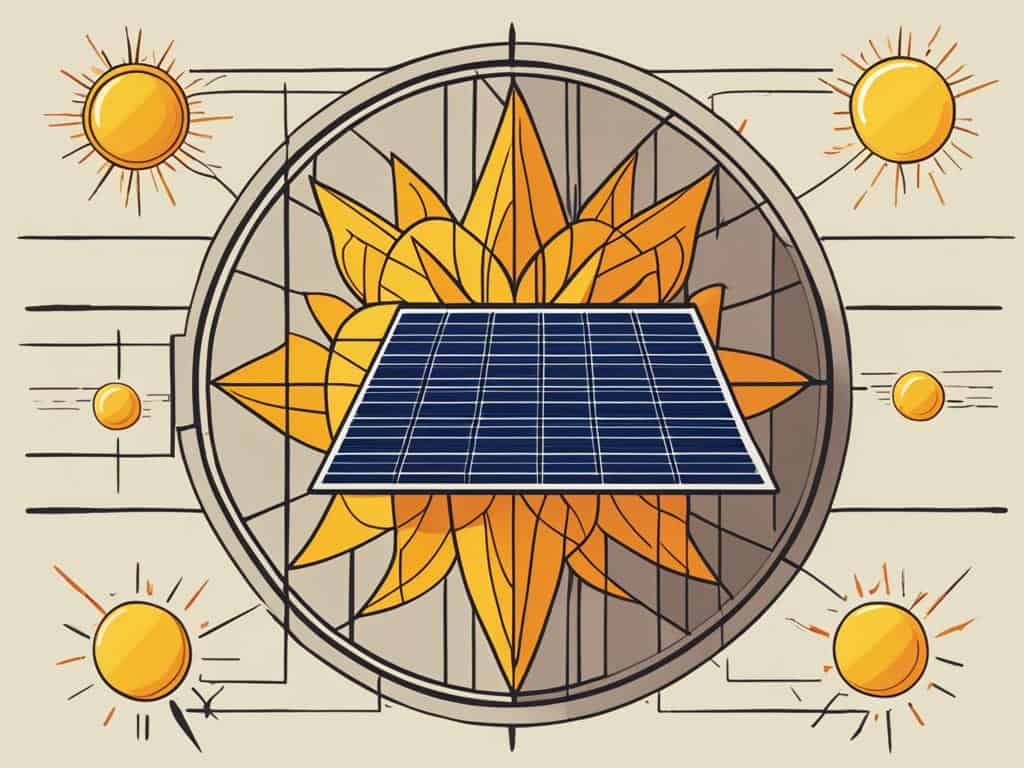
Net metering policy boosts solar energy use in India. It makes it affordable and sustainable. Users can lower their electricity costs by adding extra solar power to the grid. This encourages more solar panel installations and aids in creating a greener power grid.
The Role of Net Metering in Reducing Electricity Bills
Net metering helps cut electricity costs for users. They get credits for the surplus electricity from their solar panels. For example, in Andhra Pradesh, a home with a 2 kW solar system saves about ₹80 monthly. Over 30 years, these savings add up significantly.
Net Metering Policy Benefits to DISCOMs and End-users
The policy also benefits DISCOMs by easing peak load demands and operational losses. It lets them work more smoothly. End-users like businesses and schools can use their bill savings for other needs. Though there’s a debate on net versus gross metering, net metering still offers large benefits for solar energy users.
State-Level Net Metering Guidelines and Limitations
Net metering rules vary by state in India, with most supporting solar installations up to 1 MW. But there are some limits, like a 10kW minimum for gross metering. Despite these challenges, net metering is crucial for India. It helps manage electricity costs and supports environmental and financial health.
Connecting Your Solar Panels: Step-by-Step Procedure
Hooking up your solar panels requires knowing key steps. It’s vital to realize that this boosts self-reliance and marks a move to cleaner energy. This change comes as people grow more eco-aware.
Site Assessment for Optimal Solar Panel Metering
First, check if your place is right for solar panels. Many U.S. homes can’t fit them due to renting or not enough roof space. A pro will look at your roof’s setup and if it gets enough sun. This check is crucial for a good solar panel system.
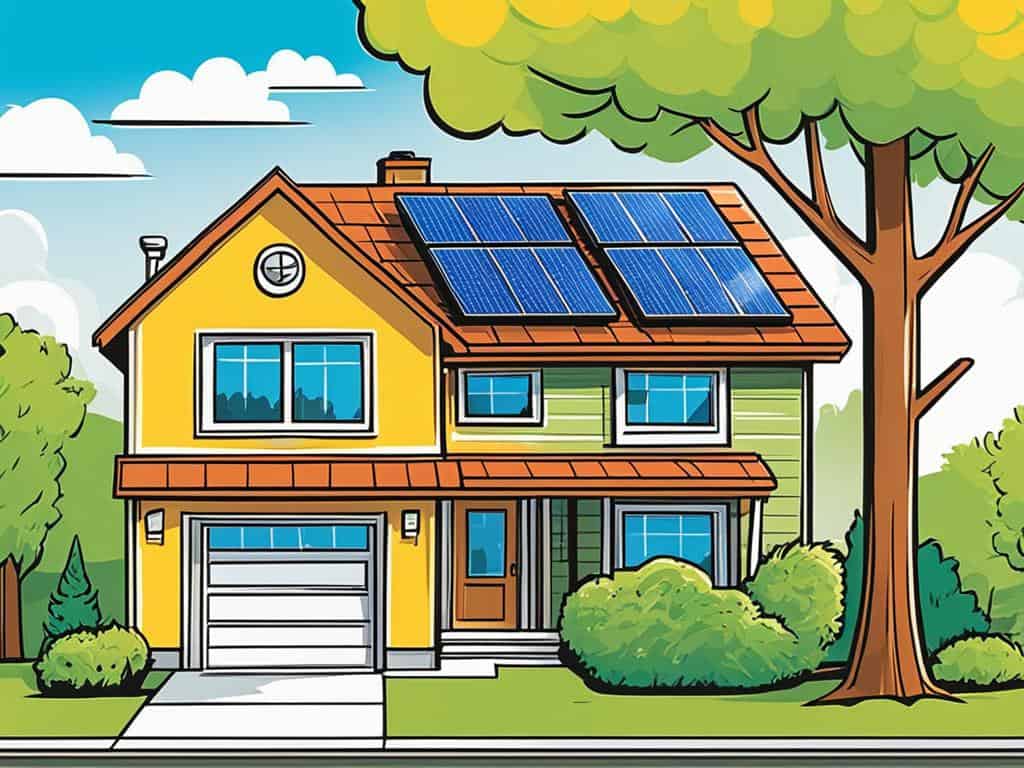
Pre-Installation Checks and Safety Measures
Next, the pre-setup phase involves important checks. Following NEC Article 690.64 ensures safety and a top-notch system. Although subsidies are decreasing, the use of certified inverters and local solar cells is a must. A good solar link needs five years of maintenance and proper setup.
Integration with Home Electrical Systems
Lastly, tying your solar meter to your home’s electrical setup is crucial. You have to choose the right type of connection. Some may even need special permission. After meeting all rules, apply for net-metering. This starts your partnership with the grid and encourages sustainable living.
| Solar Installation Aspect | Requirement | Benefits |
|---|---|---|
| Comprehensive Maintenance | Minimum of 5 years as mandated by MNRE | Ensures system longevity and efficiency |
| Domestic Manufacturing | Modules and cells listed in ALMM | Supports local industries and quality assurance |
| Payment & Subsidy Compliance | Bank details and DISCOM procedures | Facilitates release of government subsidies and smoothens payment process |
| Electrical System Compatibility | Grid-connected and off-grid systems per MNRE | Offers a tailored setup according to unique energy needs and infrastructure |
So, connecting solar meters not only offers financial freedom but also leads to eco-friendly living. Websites like the National Portal help by sharing info on subsidies and steps, making solar power easier to get.
The Advantages of Going Solar: Economic and Environmental Impact
Choosing solar energy helps the planet and saves money. Solar power means saving on expenses and helping the environment. Installing solar panels and a solar meter connection makes this possible.
Financial Incentives and Savings with Solar Meter Connections
A solar energy meter setup reduces energy costs for home and business owners. Solar meter connections let people earn credits for extra electricity they provide to the grid. This leads to big savings over time.
In the U.S., programs like the Solar Investment Tax Credit help people save on taxes when they install solar. In India, the Soura project makes solar panels cheaper for homeowners. This makes investing in solar power more appealing.
Contribution to a Greener World through Solar Energy
Going solar has big environmental benefits. It lowers carbon emissions and saves resources. Getting a meter connection for solar panels means using less fossil fuel. This fights climate change and makes the air cleaner.
Large projects, like Kerala’s Soura, aim to install solar panels on many homes. This has a big positive effect on the environment at the state level. These efforts show a commitment to being more eco-friendly.
The solar industry is growing fast, helping both the economy and the environment. Solar costs are going down while jobs in this field are increasing. More support for clean energy makes it easier for everyone to switch. This leads us to a brighter, sustainable future.
Maintaining Your Solar Meter Connection for Optimum Performance
Keeping your solar meter connection in top shape extends your solar system’s life and boosts your energy savings. This guide will show you how regular upkeep ensures your solar meters and installation stay well-maintained.
Routine Check-up and Monitoring of Solar Meters
An annual shade check is crucial to ensure your rooftop solar PV system gets enough sunlight. Cleaning the solar panels regularly is important, especially where dirt and pollutants are common. Also, for systems using antifreeze solutions like propylene glycol, replace these fluids every 3–5 years to keep things running smoothly.
If your system overheats, have measures like a drain back system ready. This helps prevent damage to your photovoltaic setup.
Troubleshooting Common Issues in Meter Connection for Solar Systems
When installing solar meters, place sensors correctly to avoid freeze damage in winter. Keeping a close eye on your solar components ensures they operate efficiently. Here are some maintenance tips for your solar meter connection:
- Scaling, corrosion, and freezing can reduce your system’s effectiveness; maintenance is crucial.
- If your system is severely damaged, replacing it might be cheaper than fixing it.
- If you spot any changes in how your solar meter performs, quick checks or expert advice can fix issues.
- Correct installation of solar meters prevents future problems and ensures accurate readings.
Knowing the costs and subsidies for solar installations helps make smart choices about your setup. With net metering, you earn money by sending extra power back to the grid. It’s good to understand different ownership models like CAPEX and RESCO for your rooftop solar PV system.
Regular maintenance and quickly handling any solar meter issues ensures your system runs smoothly. Not only does this save on electricity bills, but it also benefits the environment. With professional help from places like Fenice Energy, keeping your solar investment in great condition is easy and reliable.
Advanced Techniques for Solar Panel Metering Optimization
To make solar panel systems work their best, we need to use the latest metering techniques. These methods make sure the solar power we make is used well. They also fit with how the world is moving towards smart energy solutions. Now, over 50 countries are starting to use smart grids. This makes setting up solar energy meters key for a stronger, smarter energy system.
The European Union wants its countries to have 71% smart meters by 2023. This shows how important it is to manage solar energy well. In places like the UK and Texas, smart meters check energy use very often. This gives people a detailed look at how they use energy. So, solar metering has changed. It’s not just for recording anymore. It actively helps manage energy.
Leveraging Data Capture for Enhanced Solar Energy Distribution
Today’s solar metering uses advanced data to better manage energy flow. By analyzing this data, people can use solar power more efficiently. In India, for instance, solar meters adjust to local energy needs. This boosts grid performance and helps users save money. Smart meters, which have small data sizes, show that this technology can grow without needing a lot of data.
Maximizing Your Solar Investment with Strategic Metering Solutions
Smart metering can help those investing in solar tech see bigger returns. Smart meter data helps in many ways, from saving money to increasing security. This comes after studies found security risks in smart grids. Now, meters can connect through various networks. This means even remote areas can hook up their solar systems. The choice is about finding the best solution for each place.
Different network options offer various costs and challenges. Depending on the site’s needs, solutions range from cheap cell signals to pricier satellite services. There are also DIY choices like microwave setups or power-line communications. This makes setting up solar meters less complicated than before.
For Indian homes and businesses, these advanced metering methods are a game changer. They’re part of a bigger move towards clean energy, like what Fenice Energy offers. As energy needs grow, India is leading the way. It’s making the most of solar power and helping create a sustainable future with smart meters.
Conclusion
Net metering helps homeowners and businesses in India go green with rooftop solar panels. It offers big financial and environmental gains. By measuring electricity both ways, net meters credit users for adding power back to the grid.
This system also supports smart energy management in communities through virtual net metering. Fenice Energy leads in clean energy, making solar meter installation easy. This encourages more people to produce their own energy and helps India become more eco-friendly.
Thanks to new metering tech and government policies, solar setups are now more efficient. In 2022, India hit a big goal – 40 gigawatts of rooftop solar power. States like Punjab and Maharashtra lead by example. Their policies help integrate solar power into the grid at supportive tariffs.
This progress shows India’s dedication to sustainability and energy independence. More states improving net metering policies means more homes can join the grid. This movement saves money and promotes an eco-friendly lifestyle. It also positions India as a renewable energy leader.
Companies like Fenice Energy are there to help make the switch to solar power smoother. They offer full solutions and expertise. Joining this green shift benefits everyone – saving costs and helping our planet.
